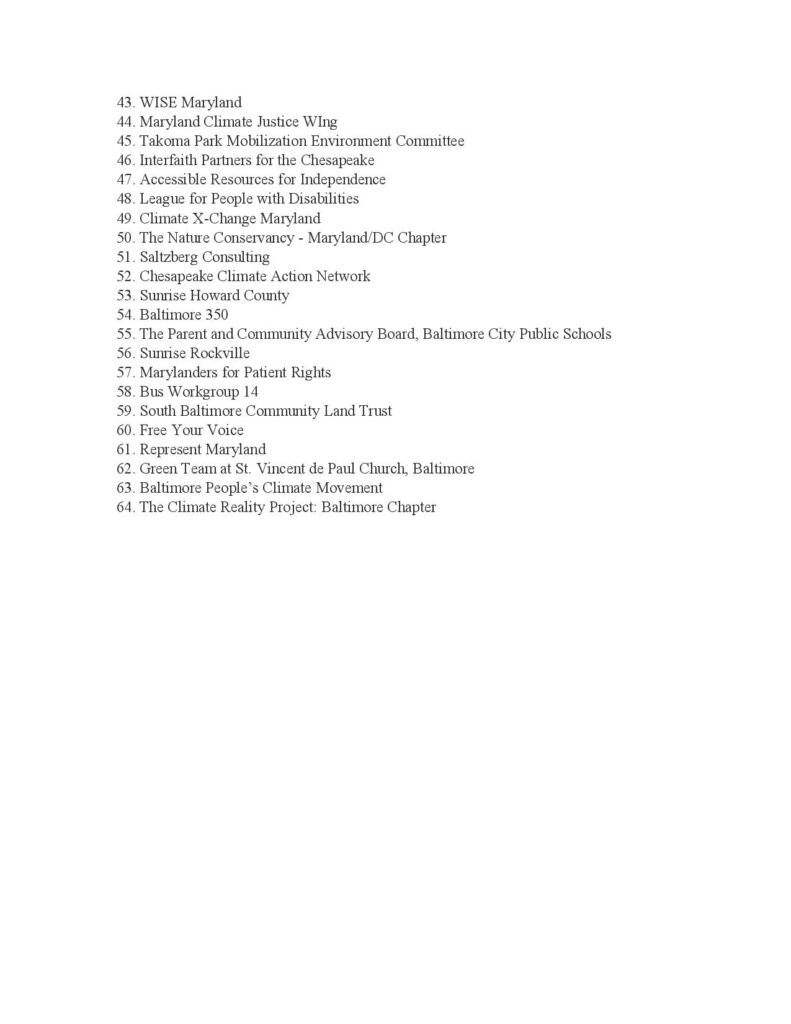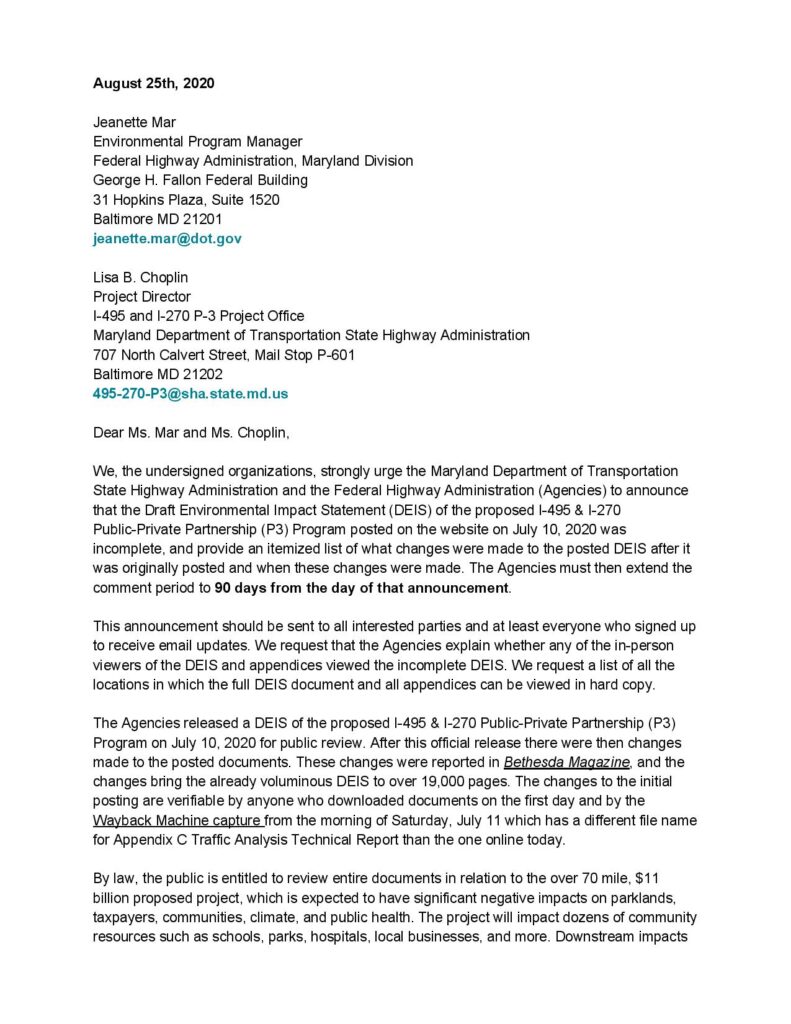Dear Members of the Congressional Delegation for Maryland, the District of Columbia and Virginia:
Transit is a lifeline for essential workers and critical to our economic health and well-being. The CARES Act, passed in March of this year, provided a stop gap to help transit agencies survive dramatic losses in revenue streams, unprecedented drops in ridership, and fund new and enhanced cleaning protocols, but the funding is running out. Transit agencies nationally need $32 billion in emergency operating funds to avoid damaging service and jobs cuts and minimize economic hardship.
The vast majority of WMATA funding comes from capital contributions, jurisdictional subsidies, and farebox revenues from riders. Since COVID-related restrictions were enacted in March, farebox revenues have evaporated. Bus fares were waived around the Capital Region to minimize interaction between rider and driver, and Metrorail, which kept fares intact, has averaged only about 10% of the pre-COVID ridership since March. In Maryland, the Transportation Trust Fund relies largely on motor fuel taxes, titling and registration fees, federal aid, sales tax, transit fares, and port and airport fees, all of which have taken a hit during the pandemic, with corresponding impacts to the Maryland Transit Administration (MTA). Meanwhile, as jurisdictions face the worst fiscal crisis in living memory, they are stripping budgets to the bones, leaving no room to alleviate losses in farebox revenue through additional jurisdictional subsidies.
When the CARES Act funding runs out, transit agencies will be forced to cut transit service and furlough or lay off workers or redistribute capital funds, intended for repairs and expansion, to operating budgets. Both options will seriously harm the viability, safety, and reliability of transit service in the short and long term, but more importantly, it will harm the riders, businesses, and regional economies and workers that depend on transit. Anticipating the lack of federal aid, WMATA and the Maryland Transit Administration have already warned of service and workforce cuts to address their COVID-19 revenue impacts. Cuts to transit will harm the region, weaken the economic recovery, slash capital expenditures and the jobs they support, and worsen inequality.
The economy cannot recover without transit. If Congress fails to act this month to fund $32 billion in emergency operating funds, it will deepen the economic pain already felt by millions throughout the country. In this time of uncertainty, grief, and loss, Congress must put aside their differences and work together to fund transit or this region will emerge weaker on the other side of the virus.
The undersigned business groups, transit agencies, unions and elected officials urge you to commit this critically needed funding for transit. Our riders, our economy, and our region depend on it.

















